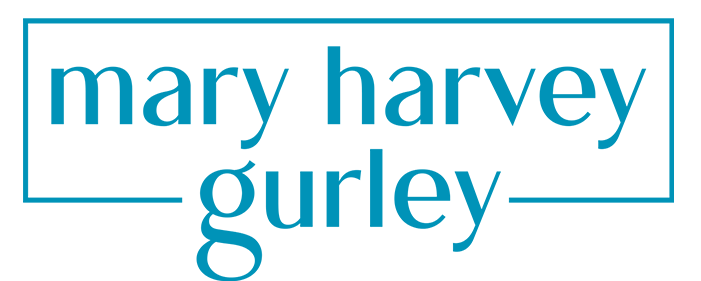The Aging Brain: Alzheimer’s, New Hope, and What We Can Do
A Weight Loss Drug Offers Hope
The first time I learned about Alzheimer’s was back in 1983. I was standing in a conference room at work, staring at a Time magazine cover. The article was about Alzheimer’s, and for some reason, it gave me chills. Deep down, I just knew this disease would affect my family. It’s strange, right? Sometimes, you get that gut feeling.
Fast forward, and my gut feeling turned into reality. Both of my parents were diagnosed with dementia and Alzheimer’s. I watched them slowly fade away—memory by memory. Recently, my cousin passed away from early-onset Alzheimer’s at just 59, making it feel even closer. Now, whenever I forget a word or misplace something, I can’t help but think, Is this the beginning for me? I’m sure many of you have had similar thoughts as we navigate this aging thing. Are you having the same experiences?
What Exactly Is Alzheimer’s?
Alzheimer’s and dementia often get mixed up, but they’re not the same thing. Dementia is a broad term that covers a variety of cognitive issues like memory loss and confusion. Alzheimer’s is just one type of dementia—the most common type. Think of it like this: all Alzheimer’s is dementia, but not all dementia is Alzheimer’s. Alzheimer’s is caused by abnormal protein buildup in the brain, which damages the cells and interrupts the brain’s ability to function.
What Happens to Our Brains as We Age?
We’ve all had those moments where we forget why we walked into a room or where we left our glasses (only to find them on top of our heads!). Those little forgetful moments are expected. But when you start to forget more frequently, or it begins to affect daily life, it might be more than just normal aging.
Here are some early signs to look out for:
- Frequent memory lapses, especially forgetting names or appointments.
- Difficulty following conversations or focusing on tasks that used to be easy.
- Personality changes, like mood swings or becoming more withdrawn.
- Struggling with routine tasks, like managing bills or cooking familiar recipes.
If any of this sounds familiar—whether it’s happening to you or someone you love—it’s worth paying attention and speaking to a doctor. Early detection can make a big difference in managing symptoms.
Mother, Aricept, and Some Humor in Between
During her journey, she started taking Aricept, one of the few medications available at the time that could slow down the symptoms. She and I always had a bit of a fiery relationship (we were more alike than we liked to admit). Still, I remember one day, during an argument—I started laughing mid-sentence. She gave me the most confused look, and I said, “Well, I guess the meds are working because here we are arguing just like old times!”
It was a brief moment of normalcy, a glimpse of the mother I knew, but the disease kept progressing. Aricept gave us a few weeks of improvement. It’s almost twenty years later, and while there have been medical advancements, there is still no cure.
Could a Weight Loss Drug Help Protect Our Brains?
Recently, I found a new research report that excited me. Recently, studies have suggested that drugs like Ozempic, which are used for diabetes and weight loss, might also help protect the brain from Alzheimer’s. And let’s be honest—who doesn’t love a two-for-one deal? Lose weight and protect your brain? Make an appointment now!
But before we get too excited, remember that this is early research. We’re still in the “let’s see how this turns out” phase. Think of it like cookies in the oven—it smells good, but we don’t know if it will taste as good as it smells. More studies are needed to confirm whether these drugs can slow down Alzheimer’s, but the idea is promising. (I sent the research to several doctor friends, and each one said it’s still too early to know.)
What Can We Do Now to Protect Our Brains?
Even though we don’t have a cure for Alzheimer’s yet, there are things we can do to keep our brains sharp as we age. Here’s what I’m doing, and you might want to consider it too:
- Get Moving: Physical exercise increases blood flow to the brain, helping it stay sharp. Whether it’s walking, yoga, or a dance class, keep moving.
- Feed Your Brain: Eating foods rich in omega-3s (like fish, nuts, and seeds) and antioxidants can support brain health. Eat your greens and your salmon!
- Stay Social: Keeping up with friends and family isn’t just good for your mood and brain. Social interactions help keep the mind engaged.
- Challenge Yourself: Learn new things, solve puzzles, or take up a hobby. Your brain needs to stay active to stay healthy.
- Sleep Well: Sleep is when your brain cleans up and resets. Getting enough rest is one of the easiest and most effective ways to protect your cognitive health.
The Surprising Link Between Hearing Loss and Alzheimer’s
Here’s something that might surprise you: untreated hearing loss can increase your risk of dementia. When your brain constantly works harder to process sounds, it can take away energy from other cognitive functions, like memory. If you’ve been putting off a hearing test, it might be time to get it done—protecting your hearing could also help protect your brain.
A Glimmer of Hope on the Horizon
While the research on GLP-1 drugs like Ozempic is still early, it’s encouraging to see progress in the fight against Alzheimer’s. It’s not a solution yet, but there’s hope that we’re getting closer to improved treatments. In the meantime, staying proactive about brain health is one of the best things we can do.
So, let’s keep moving, learning, and living with purpose. Alzheimer’s may still be a big unknown, but there’s so much we can control when protecting our brains. And remember—just because our brains change doesn’t mean we stop living full, vibrant lives.

